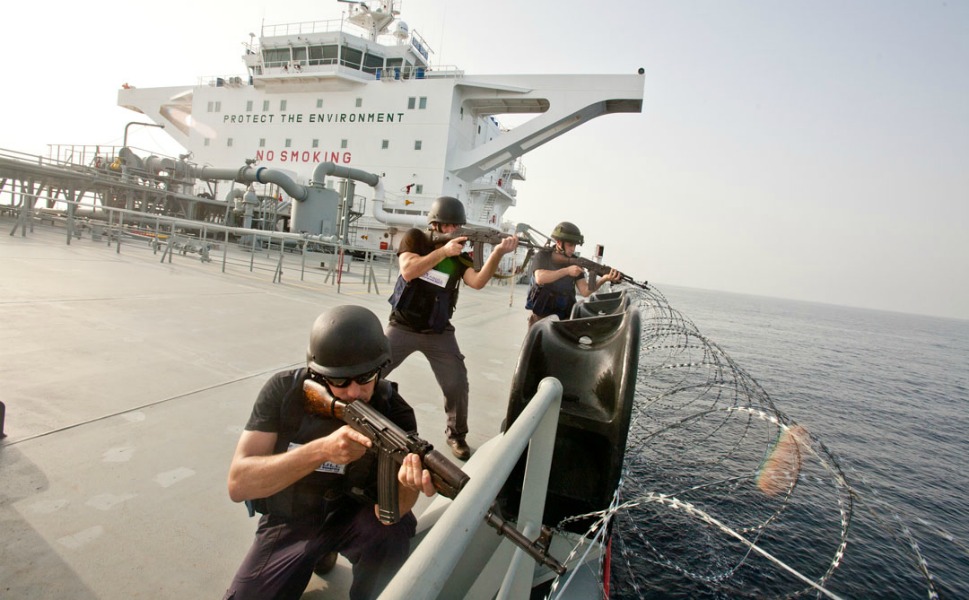Troubled Waters - Exploring the Emerging Dynamics between Navies and Private Security Companies in Anti-Piracy Operations
By Riddhi Shah - Institute for Defence Studies and Analyses, New Delhi
THE PAST decade has seen countless studies carried out on the ‘destabilizing consequences’ of private military security companies (PMSCs), also known as private security companies (PSCs).
Reports on misconduct by these security companies in several impoverished countries, which more often than not are theatres of protracted conflicts, have often found their way to leading newspapers. Notwithstanding the continuous negative press and intense misgivings in sections of the security community, the private security industry has been growing at a phenomenal rate over the past few decades.
In 1990 in the First Gulf War, the ratio of conventional soldiers to PMSC employees was 60 to 1. They have become a much more common sight in combat theatres today. In 2013, reports released by the Congressional Research Service (CRS) and the Government Accountability Office pegged the ratio of conventional soldiers to PSC contractors at 73 to 120 in Afghanistan. In Iraq, state troops were completely withdrawn in 2011. Security, for most part, is now in the hands of less than 6,000 private security contractors.
The proliferation of this industry has not been limited to land.
The world of security has come full circle. After a hiatus lasting close to two centuries, private security has resurfaced in the maritime domain; unsurprisingly, in the anti-piracy operations being carried out in the Indian Ocean Region (IOR). The resurgence of private security on sea has afforded the security community an opportunity to study this development using a lens other than the commonly-used one of the historical perspective.
The resurrection of private security in the last few decades has raised several questions for the security community. Much has been written about the impact of the private security industry on the states’ monopoly on force; the possible unwanted effects of employing this industry; and the normative conditions that have led to the resurrection of this industry. However, the scope for making original inquiries must not end here.
Studies have been few and far between on the present-day dynamics between the PMSCs and the traditional security providers in theatres where the two work alongside each other.
The dynamics between these two actors, either on land or in the maritime domain, is an issue that requires serious consideration. As such, this article makes an attempt to study the dynamics between the modern-day navies and the private security industry involved in the anti-piracy operations in the IOR.
It is hoped that the article will generate discussion and deliberation, leading to further meaningful research in this area.
Download the Study Paper
-----
Riddhi Shah is a Research Associate at the National Maritime Foundation, New Delhi, where she studies security issues in the maritime domain with a special focus on piracy, maritime terrorism and the developing market for force in the anti-piracy operations in the Indian Ocean Region.
Views expressed are those of the author. They do not necessarily reflect the views of OCEANUSLive.
 Subscribe to our newsletter. Receive a weekly round-up of all piracy-related & maritime situational awareness news.
Subscribe to our newsletter. Receive a weekly round-up of all piracy-related & maritime situational awareness news.
OCEANUSLive.org
Information, Security, Safety; Shared
Submitted by Team@oceanuslive.org